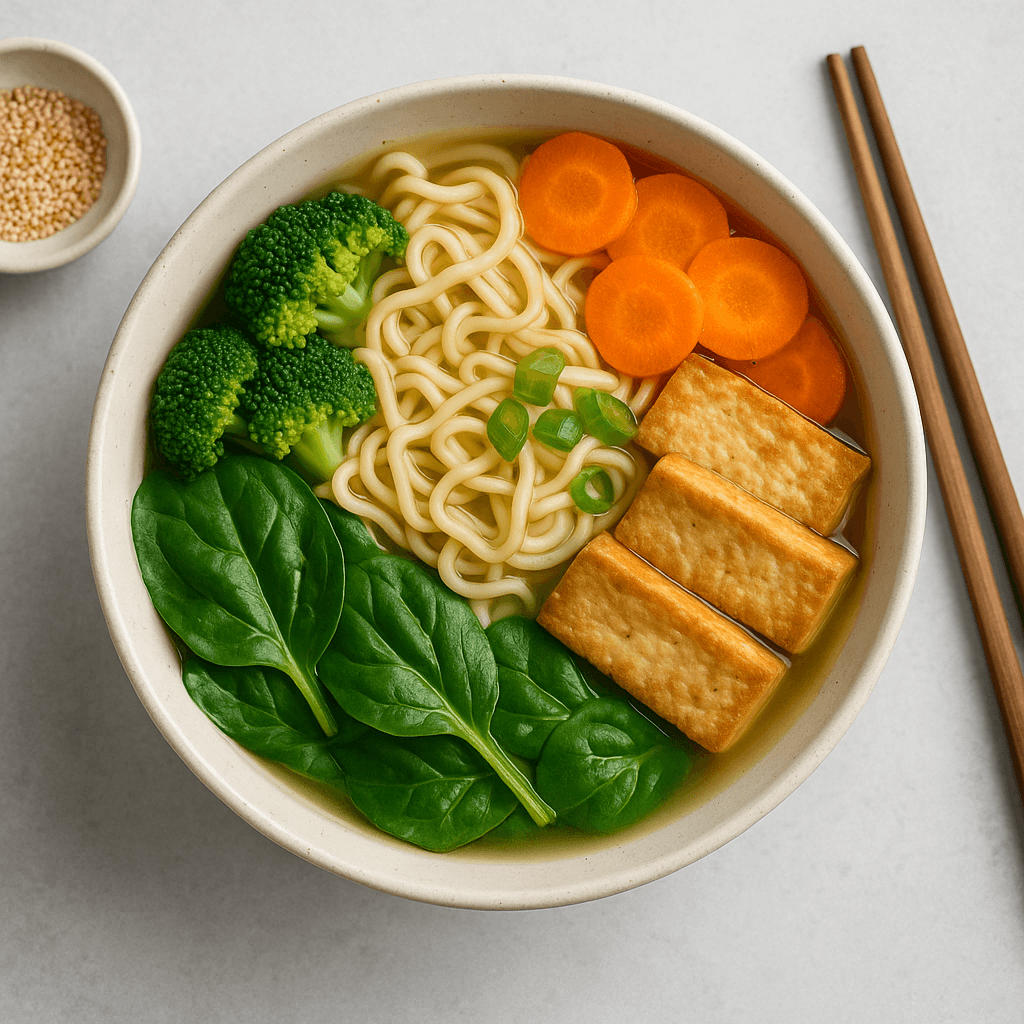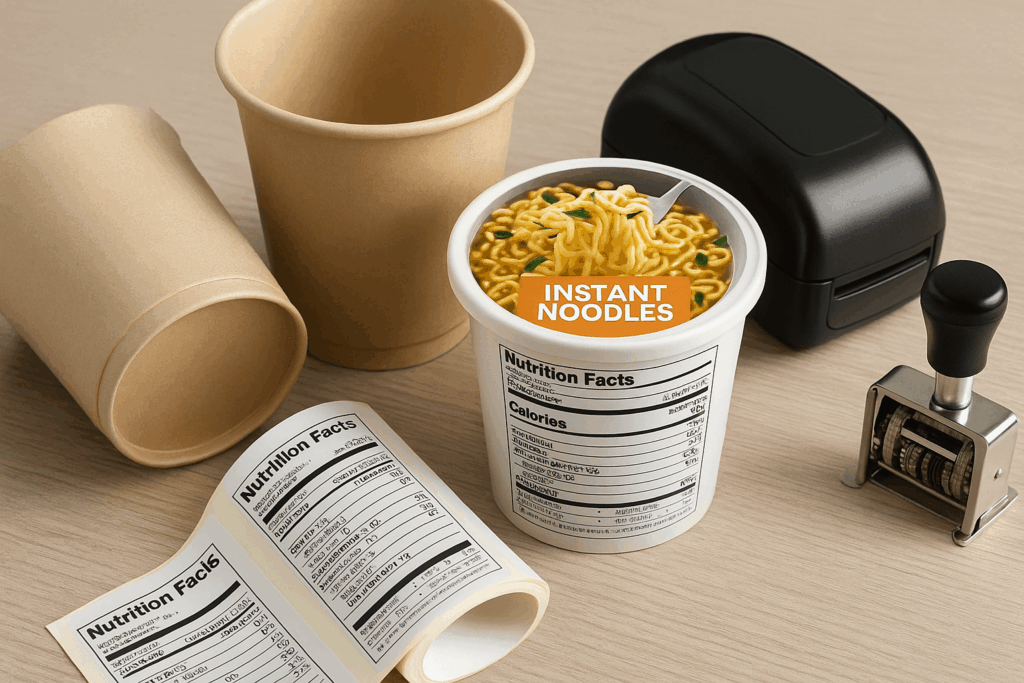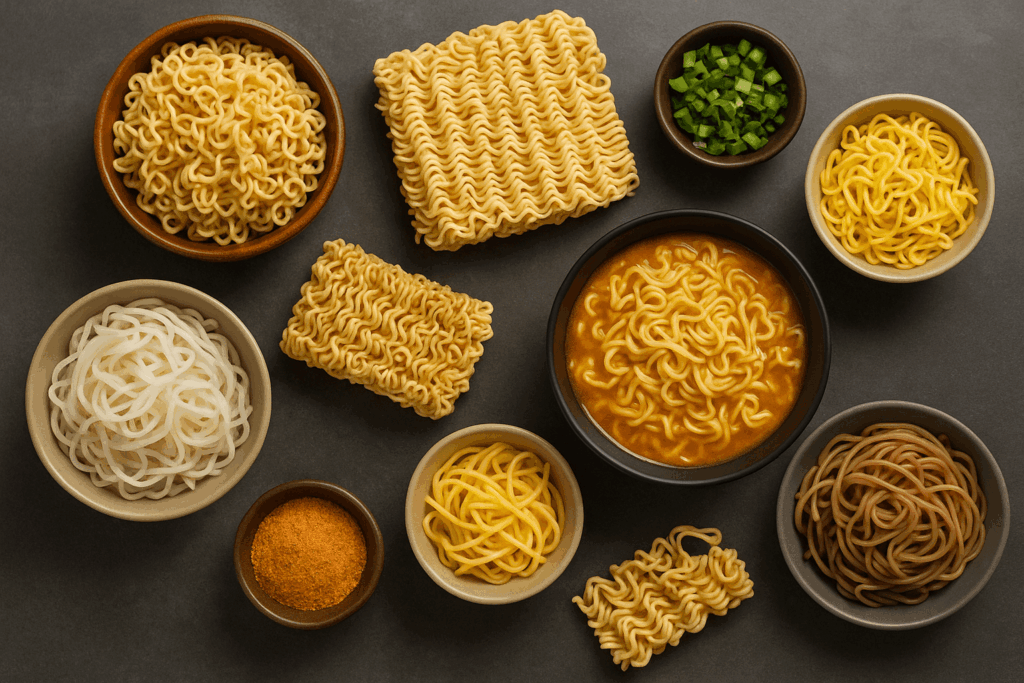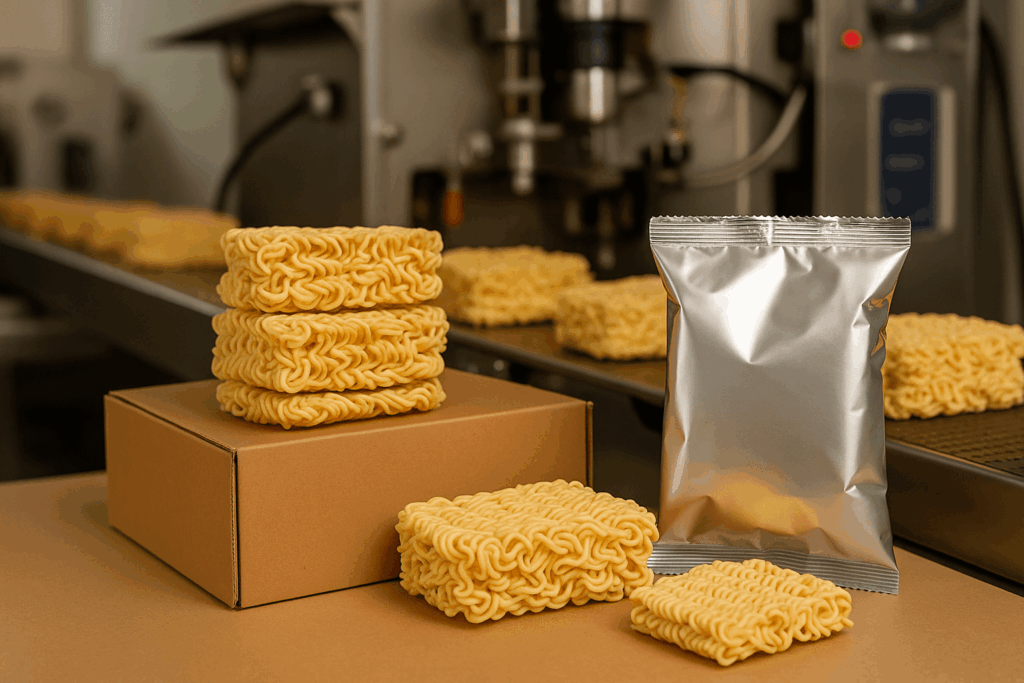Why the UAE Is a Strategic Market for Instant Noodle Brands
With a strong demand for halal-certified, high-quality, and internationally branded foods, the United Arab Emirates (UAE) is a prime target for instant noodle exports. But breaking into this high-potential market requires more than just shipping product — it requires cultural adaptation, regulatory compliance, and strategic positioning.
At Kimdee, we help brands prepare OEM products that meet UAE’s import, labeling, and halal standards while appealing to local buyers and distributors.
1. Halal Certification Is Non-Negotiable
The UAE requires that all meat and seasoning components be:
Certified by a recognized Halal body (e.g., ESMA, GSO-accredited)
Audited for processing and traceability
Labeled with the official halal logo (in Arabic and English)
🔗 Learn more: UAE Halal Regulations via ESMA
💡 Kimdee ensures all OEM noodles include halal-compliant seasonings and oils ready for export.
2. Packaging Must Follow UAE Labeling Rules
To avoid customs delays, packaging must include:
Arabic language (mandatory, can be bilingual)
Production & expiry dates in Arabic format
Ingredient and allergen disclosures
Net weight in grams, not ounces
Importer’s contact (UAE-registered entity)
📦 Kimdee provides retail-ready packaging fully aligned with Emirates Authority for Standardization & Metrology (ESMA) and Gulf Standard Organization (GSO) guidelines.
3. Preferred Product Traits for UAE Market
Winning SKUs in UAE tend to feature:
Halal-certified protein flavors (chicken, beef, seafood)
Mild to medium spice levels
Cup noodles for office and travel convenience
Family packs (3x or 5x bundles) for supermarkets
QR code labeling for product authentication
💡 Popular placements include Carrefour, Lulu Hypermarket, and Talabat (eCommerce).
4. Distributors Are the Gatekeepers
You cannot directly list in major UAE retail chains without going through:
Registered importers or food distributors
Halal-compliant logistics partners
Warehouse holders for re-labeling or customs inspection
Kimdee works with buyers and UAE-based distributors for onboarding, shelf testing, and pricing strategy.
🔗 Resource: UAE Food Import Requirements – U.S. Agricultural Export Development
5. Export Documents You Must Prepare
To enter the UAE market, prepare:
Halal certificate from approved body
Health certificate & Certificate of Origin
Commercial invoice, packing list, and bill of lading
Importer’s trade license
Product label sample
🧾 Kimdee provides document templates and logistics coordination for UAE food shipments.
Want to Export Instant Noodles to the UAE?
Kimdee supports food brands with full OEM production, halal ingredient sourcing, compliant labeling, and distributor partnerships for UAE entry.
📩 Email: carlng@kimdeefoods.com
🔗 Learn more: Kimdee OEM Services
FAQ
Q1: Is halal certification required even for vegetarian SKUs?
Yes — all food imports require halal approval, regardless of ingredient origin.
Q2: Can I use a distributor’s address as the UAE label contact?
Yes, if they are officially registered and agree to act as your representative.
Q3: Does Kimdee support halal certification for the UAE?
Yes. We work with GSO-accredited halal bodies and offer compliant seasoning solutions.
Q4: What’s the typical MOQ for UAE distributors?
Start with 10,000–20,000 pcs for testing, then scale based on buyer feedback.






